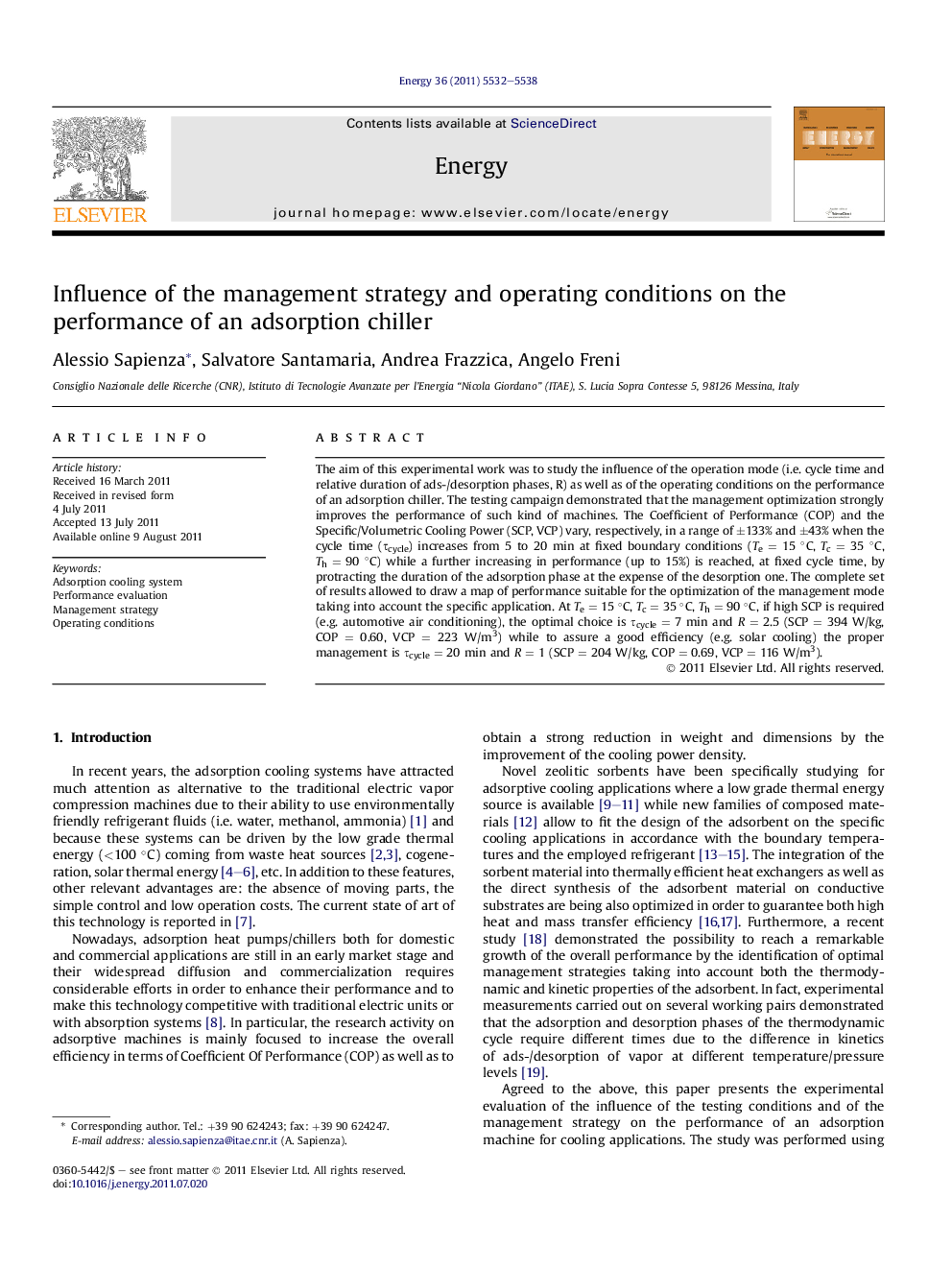| Article ID | Journal | Published Year | Pages | File Type |
|---|---|---|---|---|
| 1734575 | Energy | 2011 | 7 Pages |
The aim of this experimental work was to study the influence of the operation mode (i.e. cycle time and relative duration of ads-/desorption phases, R) as well as of the operating conditions on the performance of an adsorption chiller. The testing campaign demonstrated that the management optimization strongly improves the performance of such kind of machines. The Coefficient of Performance (COP) and the Specific/Volumetric Cooling Power (SCP, VCP) vary, respectively, in a range of ±133% and ±43% when the cycle time (τcycle) increases from 5 to 20 min at fixed boundary conditions (Te = 15 °C, Tc = 35 °C, Th = 90 °C) while a further increasing in performance (up to 15%) is reached, at fixed cycle time, by protracting the duration of the adsorption phase at the expense of the desorption one. The complete set of results allowed to draw a map of performance suitable for the optimization of the management mode taking into account the specific application. At Te = 15 °C, Tc = 35 °C, Th = 90 °C, if high SCP is required (e.g. automotive air conditioning), the optimal choice is τcycle = 7 min and R = 2.5 (SCP = 394 W/kg, COP = 0.60, VCP = 223 W/m3) while to assure a good efficiency (e.g. solar cooling) the proper management is τcycle = 20 min and R = 1 (SCP = 204 W/kg, COP = 0.69, VCP = 116 W/m3).
► We studied the effect of the management strategy on the performance of adsorption cooling systems. ► The activity was carried out by a lab scale adsorption chiller. ► The cycle time and the relative duration of the cycle phases strongly affect the performance. ► Results can support the design and the operation of adsorption cooling systems.
